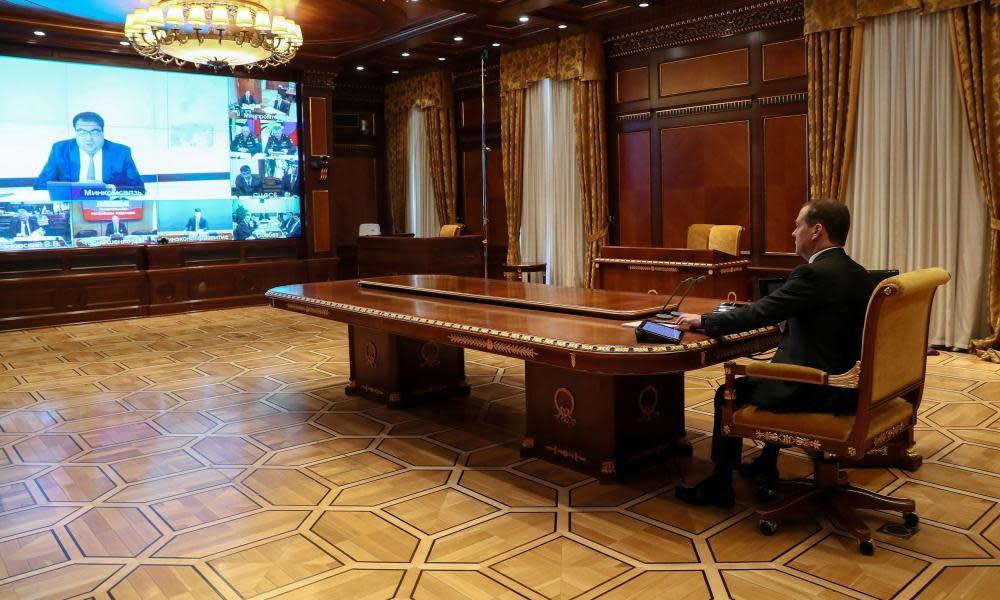Posturing and point-scoring leave UN hamstrung against coronavirus

In the face of a truly global crisis, the world’s highest deliberative body, the UN security council, has been paralysed by squabbling among the major powers.
The 15-member council has not even been able to muster a joint statement on combating the spread of the coronavirus – in part because of US insistence that it should stress the Chinese origins of the pathogen, which was unacceptable to other states, not least China.
A draft statement would have echoed the calls from the UN secretary general, António Guterres, for a global ceasefire in view of the pandemic.
The US has also ignored Guterres’ calls for sanctions to be suspended on vulnerable countries. Over the past week, Washington has intensified punitive action against Iran and Venezuela. At the same time, Russia has blocked an attempt to hold virtual security council sessions by video conference.
“In the current circumstances, it is important to show to the rest of the world that UN and its security council are functioning,” the Russian ambassador, Vassily Nebenzia, wrote to his Chinese counterpart, who had proposed video conferences.
The letter was first reported by Foreign Policy. The Russians have allowed some video conferences to go ahead but have insisted they be counted as informal consultations rather than formal sessions.
default
“We shouldn’t be afraid to gather from time to time in the UNSC chamber. After all the preventive measures taken by the secretary general, the UN is one of the safest venues in NYC, and the risk of getting the virus there is much lower than when we go to a shop for basic needs,” Nebenzia argued.
Other council members did not share his assessment of the health risks, and were suspicious of Russian motives.
“I thought, initially, it was a Russian macho thing – and it may have been at first – but it looks like it might be tactical,” one security council diplomat said. “They like being on the security council, but they don’t like being called to account for their behaviour in Syria, Libya, Central African Republic, etc. So they’ll enjoy the break.”
Related: Tell us: have you been affected by the coronavirus?
The UN’s general assembly can step in where the security council has failed, and is currently considering a resolution to uphold the organisation’s central role in fighting the pandemic and to ensure that “there is no place for any form of discrimination, racism and xenophobia in the response to the pandemic”.
But some diplomats voiced concern that if the security council becomes less visible at the height of the pandemic, it will lose its centrality as an arena in which the world’s most powerful governments are held to account.
“If there aren’t meetings on things like Syria now, it makes it easier for them not to happen and easier to make the UNSC a less important global meeting once we come back,” said the security council diplomat, who suggested that could be Russia’s long-term aim. “I think they’ll see if they can reshape the world order to their benefit.”


